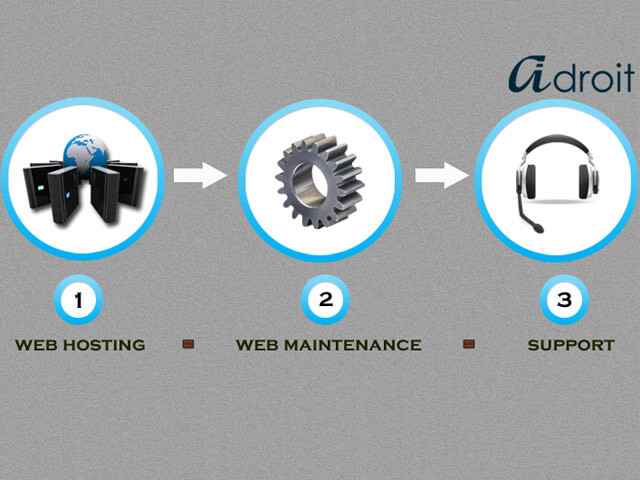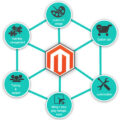Why Every Business Should Consider Custom Software Development
In today’s increasingly digital world, the need for businesses to stay ahead of the curve is more crucial than ever. With the rapid advancements in technology, traditional methods of managing operations, customer relationships, and products are no longer sufficient to keep up with the competition. Businesses must leverage technology that is tailored specifically to their needs, and that’s where custom software development comes in. While off-the-shelf software solutions may seem like a more accessible choice, they often fail to meet the unique needs of a business. Custom software, however, is designed specifically to address a company’s objectives, providing a range of benefits that can make a significant difference to long-term success.
In this blog post, we will explore why every business should consider custom software development, detailing how it can lead to increased productivity, enhanced security, and greater competitive advantage.
The Rise of Custom Software Development
Custom software development refers to the creation of software that is tailor-made to meet the unique requirements of a specific business, industry, or organization. Unlike off-the-shelf software, which is designed for general use, custom software focuses on solving particular problems faced by businesses and adapting to their internal workflows.
The rise of custom software development is driven by the growing need for digital transformation. As businesses evolve and their processes become more complex, off-the-shelf solutions often fail to provide the flexibility and scalability necessary to meet new challenges. According to research conducted by Statista, the global custom software development market is growing at a rapid pace, as companies increasingly realize the importance of investing in technology that is specifically designed for their needs.
As technology continues to evolve and disrupt industries, the need for custom solutions has become critical. Let’s dive into why custom software development has become so important for businesses today.
Key Advantages of Custom Software Development
1. Tailored Solutions for Unique Business Needs
Every business is different—whether you’re a startup in need of a simple internal tool or an enterprise with complex operational needs, custom software is designed to cater to your unique objectives. Off-the-shelf software is built with a one-size-fits-all approach and often lacks the necessary features and functionality that address a business’s specific pain points.
For example, a project management tool like Trello may be suitable for smaller teams, but it may not be scalable enough to meet the complex needs of a large enterprise that requires customized workflows, advanced permissions, or integration with other systems like CRM or ERP platforms. By opting for custom software, you ensure that the solution fits your business processes, rather than the other way around.
Custom software allows businesses to:
- Automate specific workflows that are critical to operations.
- Build features that are unique to the industry, such as compliance tracking for regulated industries.
- Develop integrations with legacy systems, ensuring continuity without disruption.
- Improve the user interface (UI) to align with your brand’s identity and the way your team or customers interact with the software.
This level of customization enables companies to stay efficient, reduce manual work, and improve overall business performance.
2. Scalability and Flexibility
The business world is fast-moving, and a software solution that works today may not meet your needs tomorrow. Custom software allows for scalability, meaning your software can grow with you as your business expands.
For example, an e-commerce company might start with a small inventory and customer base, but as the company grows, it requires a software solution that can handle a larger product catalog, increased transactions, and new payment methods. Off-the-shelf solutions may not provide the necessary scalability, forcing businesses to either upgrade or switch to a different tool entirely.
With custom software development, you can plan for future growth, ensuring that the software will be able to support increased capacity. Whether it’s adding new features, handling larger amounts of data, or accommodating more users, custom software solutions can evolve with your business, saving you from the headache and cost of replacing or reworking your software down the line.
Moreover, custom software development offers unparalleled flexibility. As business needs change, custom solutions can be adjusted to meet new challenges without requiring a switch to a different platform or disruptive migration process.
3. Improved Security

Data security is one of the most pressing concerns for businesses today. Cyberattacks, data breaches, and hacking attempts are on the rise, and businesses are often targeted because of their reliance on generic software solutions that may have common vulnerabilities.
Off-the-shelf software, particularly widely used platforms, becomes an attractive target for cybercriminals since they are familiar with the potential weaknesses of the system. With custom software, businesses can build security features that are specifically designed to protect their sensitive data and meet regulatory requirements such as GDPR, HIPAA, or PCI DSS.
Some security benefits of custom software include:
- Custom authentication methods: Whether it’s two-factor authentication (2FA) or role-based access control, you can design your security protocols to meet your specific needs.
- Data encryption: Custom software can be designed to encrypt sensitive data both at rest and in transit, ensuring that unauthorized users cannot access or steal business-critical information.
- Frequent updates: Custom software can be regularly updated with security patches to address newly discovered vulnerabilities, something that might not be immediately available for off-the-shelf products.
By opting for custom software, businesses can have more control over the security of their systems and data, reducing the risk of data loss, leaks, or financial damage caused by cyberattacks.
4. Cost-Effectiveness in the Long Run
While custom software may require a higher initial investment compared to off-the-shelf solutions, it can prove to be more cost-effective in the long term. Many businesses are drawn to off-the-shelf software because of its lower upfront costs, but often, these savings are outweighed by the hidden costs that arise over time.
For example:
- License fees: Many off-the-shelf software solutions charge recurring license or subscription fees, which can add up over time.
- Limited support and maintenance: With off-the-shelf software, businesses may face additional costs for technical support or ongoing maintenance, especially when bugs or issues arise.
- Inefficiencies: Businesses may need to spend additional time and resources trying to adapt an off-the-shelf solution to fit their unique needs, which could lead to inefficiencies and operational delays.
Custom software development eliminates many of these recurring costs. Once the software is developed, you own it outright, and any modifications or upgrades are handled by your in-house team or a contracted developer. This reduces the overall lifetime costs of the software and provides more control over your tech budget.
5. Better User Experience
User experience (UX) is critical to the success of any software solution. If employees or customers struggle to navigate the software or find it cumbersome to use, it can lead to inefficiency, frustration, and lower adoption rates. Off-the-shelf software may not always prioritize the specific workflows of your business, which can result in a less-than-ideal user experience.
Custom software development allows businesses to create a seamless and intuitive UI that aligns with how users interact with the system. For instance, custom software allows you to:
- Design workflows that match your team’s existing processes.
- Create a user-friendly interface that’s easy to navigate, reducing training time and increasing adoption.
- Tailor the software to the needs of different user types, whether that’s a customer-facing application or an internal tool.
This approach can greatly improve employee productivity, reduce errors, and enhance customer satisfaction by providing a solution that is easy to use, highly efficient, and aligned with business objectives.
6. Enhanced Competitive Advantage
In a world where differentiation is key, businesses need every advantage they can get. Custom software development gives companies the ability to innovate, adapt, and implement features that set them apart from their competitors.
For example, custom software could allow you to:
- Introduce unique features that competitors don’t offer.
- Integrate cutting-edge technology like artificial intelligence, machine learning, or blockchain.
- Build unique customer service portals, apps, or other tools that improve customer engagement.
By implementing features that specifically address your market needs and user preferences, you give your business a competitive edge. Custom software can help you differentiate your brand, improve the customer experience, and position your company as an innovator in your industry.
7. Integration with Existing Systems

Many businesses rely on a combination of software tools and systems for different tasks—customer relationship management (CRM), accounting, inventory management, etc. Off-the-shelf software can sometimes struggle to integrate with these existing systems, resulting in inefficiencies, data silos, and manual workarounds.
Custom software, however, is designed to integrate seamlessly with your existing tools and systems, ensuring that data flows smoothly across different platforms. This integration can reduce the need for manual data entry, improve reporting accuracy, and streamline business operations.
For example, if you’re using an enterprise resource planning (ERP) system and a customer support tool, custom software can be designed to integrate both, ensuring that customer support agents have access to real-time inventory and order data, leading to quicker resolution times and better customer satisfaction.
Conclusion
The decision to invest in custom software development is not one that should be taken lightly, but it is an investment that can pay significant dividends for businesses in the long run. Custom software offers a tailored solution that addresses the unique needs of your organization, improves security, enhances scalability, and provides a better user experience—all while offering a competitive edge in your industry.
Whether you’re a small startup or a large enterprise, custom software can help streamline your processes, reduce inefficiencies, and position your company for growth. In today’s rapidly evolving digital landscape, businesses that embrace technology and invest in custom solutions will have a distinct advantage, enabling them to thrive in an increasingly competitive world.
By choosing custom software development, you are not just investing in a tool—you are investing in your business’s future.












